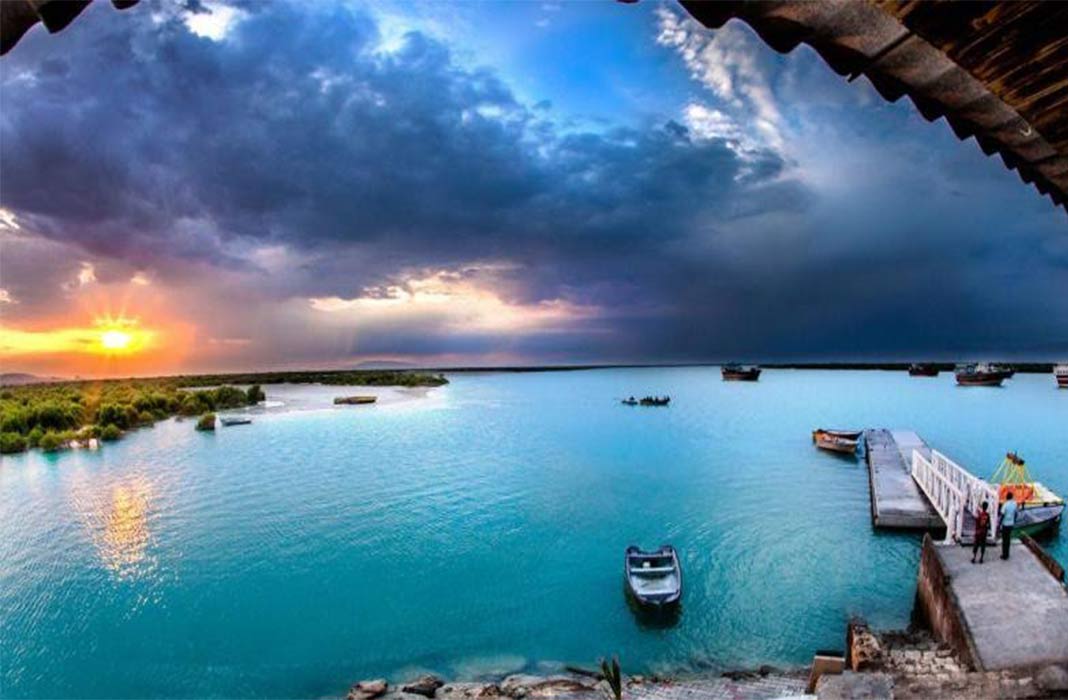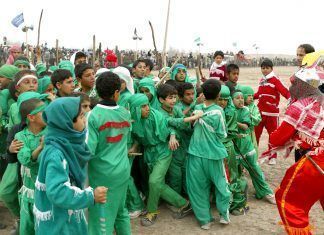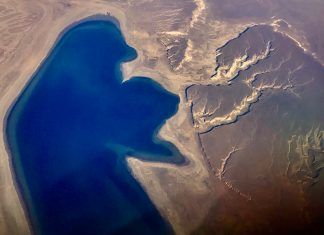Large-scale shrimp hatchery operations could cause the Qeshm Island Global Geopark to lose its status as a UNESCO World Heritage Site, Alireza Amri Kazemi, the deputy director of Qeshm Trade Industrial Free Zone’s Department of Tourism has said.
Mr. Kazemi, who is also the managing director of Qeshm Island Global Geopark, made the remarks during an interview with the Mehr News Agency on January 26.
“According to officials at Iran Fisheries Organization, two [aquatic farming] companies have received business licenses to operate on the Qeshm Island Global Geopark,” Mr. Kazemi said. “Qeshm Trade Industrial Free Zone has, however, issued no business operating licenses. Permits issued by other organizations are not valid. It is also illegal to set up such operations on the Qeshm Island Global Geopark, particularly near the Salt Cave, which is a protected natural reserve.”
“The Qeshm Trade Industrial Free Zone used several legal channels to warn the companies before the start of the project a few months ago,” Kazemi explained. “They have, however, resumed construction, despite verbal and written warnings from the Judiciary. The project involves digging the ground, removing soil, and setting up shrimp hatcheries, which will deface the protected natural reserve.”
“The Qeshm Island Global Geopark should not lose its World Heritage Site status because of the actions of one investor,” Kazemi added. “The shrimp hatchery project will destroy a large area, measuring 1,200,000 hectares (200,000 square meters) inside Qeshm Island Global Geopark. Inspectors from UNESCO Global Geoparks will visit Qeshm in the coming months. Depending on their findings and final report, Qeshm Island Global Geopark may lose its status as a World Heritage site.”
The Qeshm Island Global Geopark was designated a UNESCO’s Tentative World Heritage Site in 2007. It was temporarily removed from the list in 2013 after receiving a negative review. Many fear that the shrimp hatchery operation could cause the Geopark to lose its Tentative World Heritage Site status.
[aesop_image img=”https://kayhanlife.com/wp-content/uploads/2020/02/ژئوپارک.jpg” panorama=”off” credit=”Qeshm Island Global Geopark. KAYHAN LONDON” align=”center” lightbox=”off” captionsrc=”custom” captionposition=”left” revealfx=”inplaceslow” overlay_revealfx=”inplaceslow”]
The director of Hormozgan Province’s Department of Forests, Range and Watershed Management, Omid Zakeri has defended the decision to allow private aquaculture companies to set up shrimp hatcheries in the protected natural reserve.
“The Land Registry Office of the province consults the Department of Environment, the Ministry of Roads and Urban Development, and the Water Department before approving any project in a nature reserve,” Mr. Zakeri said in an interview with the Iranian Students News Agency (ISNA) on January 29. “The Department of Forests, Range and Watershed Management issued the permit to the aquaculture companies to set up their shrimp hatcheries after getting a green light from the Land Registry Office. The management of Qeshm Island Global Geopark never notified us about the rules and regulations. We cannot oppose any project in the absence of clear guidelines.”
Meanwhile, a group of six Majlis (Iranian Parliament) deputies has written to President Hassan Rouhani, urging him to stop the aquatic farming project in Qeshm Island Global Geopark.
“The Salt Cave is part of the protected natural reserve of Qeshm Island UNESCO Global Geopark,” the signatories to the letter; Fatemeh Zolghadr, Farideh Owlad-Ghobad, Parvaneh Salahshouri, Fatemeh Saeedi, and Tayebeh Siavoshi — all representing Tehran, Rey, Shemiranat and Eslamshahr electoral district — and Seyedeh Hamideh Zarabadi, serving Qazvin, noted. “Why have Iran Fisheries Organization and the Ministry of Agricultural Jihad have allowed a company to set up a shrimp hatchery there? We urge you to stop this operation as soon as possible and revoke its business license.”
“The Qeshm Public Prosecutor’s office is investigating the shrimp hatchery company’s operating license,” the director of Hormozgan Province’s Cultural Heritage, Handicraft, and Tourism Organization of Iran (ICHTO) Reza Boroumand told ISNA. “Qeshm Trade Industrial Free Zone is pursuing the status of Qeshm Island Global Geopark as a UNESCO World Heritage Site. Hormozgan Province National Heritage office will have the final say on the matter given that the shrimp hatchery is near the protected Salt Cave within the Qeshm Island Global Geopark.”
[Translated from Persian by Fardine Hamidi]








